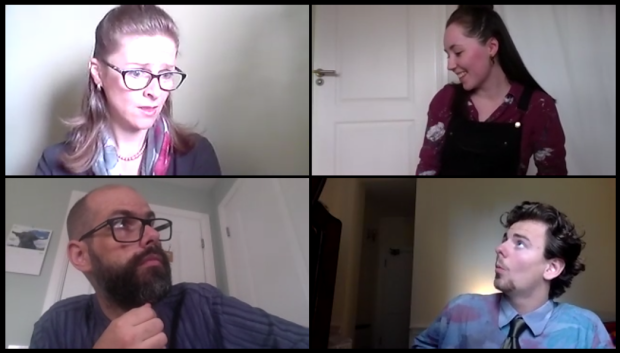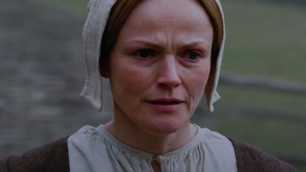
23/07/20
Big Mind Theatre
Creators gonna create, right?
Until March 2020, I’d only ever associated the phrase ‘the theatres were closed’ with Shakespeare-lore: fascinating to read about, but as relevant to me as a ruffed collar or a Stratford cottage.
And then along came the coronavirus – and suddenly we were living right in the middle of history, experiencing the kind of ‘interesting times’ that make it into school syllabi.
It affected us all. As a drama teacher and a reviewer, I was left with a void. My day job and my night job, both vanished in one fell swoop.
But we pick ourselves up, don’t we? The company I work with started offering drama workshops on Zoom. The National Theatre beamed its extensive back catalogue into our living rooms. We muddled through, made do.
But oh, I have missed live theatre. And, even now, as other industries begin to open up, there’s little sign that our playhouses will be able to follow suit.
So thank goodness for the inventive minds that populate the performance industry, for the brainwave that saw somebody realise that certain classic plays are perfectly suited to the Zoom platform. Thank goodness for Big Mind Theatre, and their cleverly staged production of Václav Havel’s 1963 play, The Garden Party.
It’s live, properly live, and I love it. We sign in, then mute ourselves and make ourselves invisible.
The play is an allegory, skewering the behaviour of those who conformed to the Communist regime in Czechoslovakia. Language becomes meaningless as the characters parrot the same phrases in an endless loop, all struggling to adapt to a nebulous set of ideals.
Not quite all: Hugo Pludek (Ben Fleming) is, it transpires, marvellously adaptable. We first meet him talking to his parents (Ross Bailie and Mick Rowe) whilst listlessly playing chess against himself, winning and losing every game. They’re worried about him, so they’ve arranged a meeting with the influential Mr Kalabis.
They wait, fruitlessly repeating the same inane questions; there are definitely echoes of Godot here. And then, when Kalabis reneges, citing the need to attend a Garden Party as an excuse, Hugo is dispatched to the same party, in order to ingratiate himself.
It all works out rather too well, as Hugo coldly observes and plans his moves, before assimilating – and then annihilating.
It’s a bleak tale, and chillingly directed by Katrina Woolley. The textual changes required to make it believable as an online world are only slight, and it feels unpleasantly prescient. The performances are uniformly good, with Lucy Wilson creating an especially nightmarish vision of ruthlessness hidden by a big bright smile.
I have just one criticism, and that’s the length. It’s an intense piece of writing, and the Zoom format really amps up that intensity. It all gets a bit much, and I can’t help thinking some judicious pruning would be beneficial here.
All in all though, this is a bright spot in a world of dark theatres. Don’t miss the chance to see it. You have until 25th July and you can find tickets on Eventbrite or by following this link. https://www.facebook.com/events/228638011488957/?active_tab=about
4 stars
Susan Singfield














